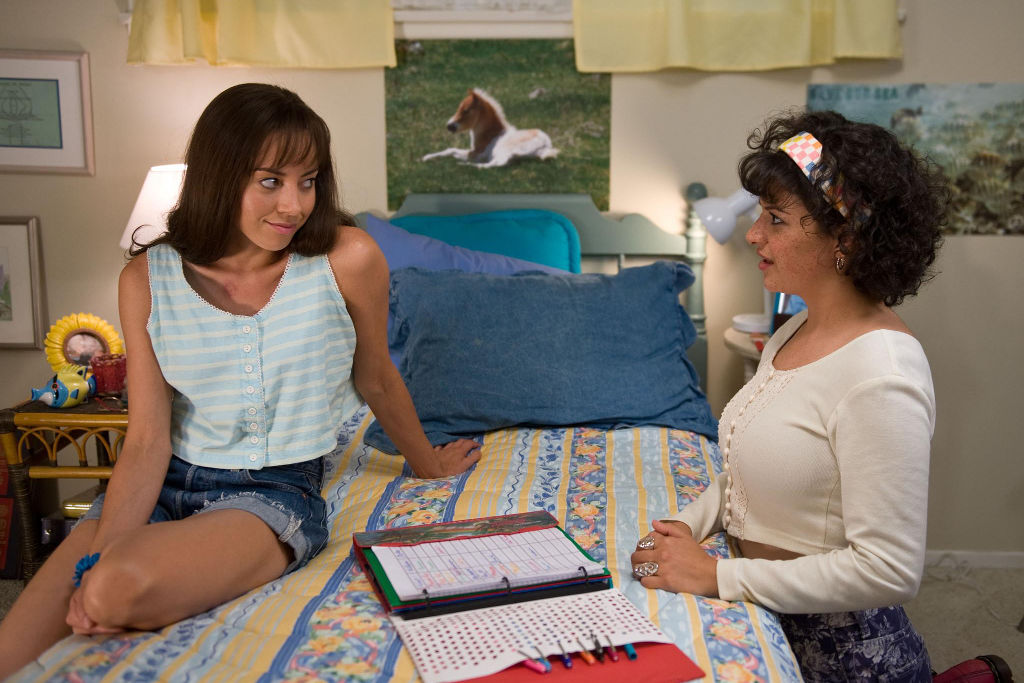What We’re Getting Wrong About Virginity And Sex: ‘The Sex Myth’ Reviewed
You aren't who you do.

While reading The Sex Myth—the new book on gender, sexuality, and the cultural imperative of sex by Aussie-born and NYC-based journalist Rachel Hills—I was reminded of an evening I spent with friends while at university. There were about six of us sitting around in my living room late one evening. We’d bought some wine after a rehearsal for a play we were in, and talk turned, as it so often does in university, to sex.
There were the obligatory discussions of partners and positions, a good deal of posturing and a lot of laughs. It turned into a round of ‘Never Have I Ever’, the drinking game in which each participant gets a turn to effectively boast about various sexual deeds. If you as a listener have also performed such a deed, you take a drink.
As the game progressed, an unexpected reality gradually surfaced. There was an awkward pause when it was finally confirmed — in my memory, by show of hands: 50% of the group had actually never ‘had sex’ before. The assumption had been that we were all sexually active, and the truth was something that the virgins in the group had been keen to keep on the down-low.
This is precisely the kind of example that Rachel Hills uses to explain what the Sex Myth is: the fact that, even though we are living in a supposedly sexually liberal culture, we are still bound by strict codes around what sex is, what it means, and what it apparently says about you if you haven’t ‘done it’ — especially by your late teens and early 20s. Hills argues that it’s the same obsession with sex that once told us we were immoral if we didn’t have the right kind of sex that now tells us we’re deviants if we don’t have the right kind of sex, or enough of it, or with socially acceptable partners.
Hills employs a persuasive approach to her thesis, using compelling personal interviews gathered over seven years of research across North America, the UK and Australia, mixed with statistics from academic studies, examples from pop culture, feminist literature, and scholarly essays from the fields of gender and cultural studies, sociology and psychology. The breadth of sources gives the book considerable depth and academic credibility, but it remains relatable, if not intuitive, to read.
One of the most fascinating and revealing facts, mentioned in the first few pages of the book, quotes a survey which found that, on average, college students believed that 80% of their peers were having sex on a given weekend; in actual fact, 80% was the proportion of their peers who had ever had sex, with the proportion having sex on any given weekend closer to 5–10%. This encapsulates the Sex Myth: we all think everyone else is doing it all the time — and that it’s us who are the freaky, unattractive ones.
Another important thing the book does is debunk virginity. Hills discusses the idea—much-discussed in feminist circles, but yet to penetrate mainstream awareness—that virginity is not a scientific or a medical fact, but rather a cultural construct most frequently used to police sexuality (especially women’s) and identity (especially men’s). Virginity also tends to be very narrowly defined as heterosexual penetration, which implicitly disqualifies non-penetrative, non-heterosexual sex — and those who have it — as not sexually legitimate.
Hills identifies early on that, under the Sex Myth, it’s more important that you appear to be having sex than whether you are having it; and if you are, the appearance of enjoying it is more important than actually enjoying it. Who you’re having sex with is also important—the Myth dictates that it says more about you than your own personality and interests do. For instance, if you choose to have sex with no-one, it says that you’re somehow deficient. If you are celibate but not by choice, it says you’re unattractive and therefore undesirable. Hills even relates a story from a group of young men whose sexual conquests were rated by other members of the group; if your partners were ugly (according to your mates), it meant you were a loser.
This link between sex, sexual partners and identity reminded me of another friend at uni. She was 18, had never had sex and identified as a lesbian. I remember one day finding her upset and deeply confused: she had a crush on another friend of ours, a man. This didn’t tally with her sense of identity or with her perception of what a lesbian should be. However, as Hills points out as she begins to wrap the book up, we are not the sum of our sexual acts — although the Sex Myth has it that way. For instance, if someone has had many different partners, they’re not just a person who’s had a lot of partners, but they embody ‘slut’ or ‘man-whore’; a person isn’t just attracted to people of the same sex, they are gay. The centrality and mythic importance of sex under the Sex Myth requires that humans are defined by their sexual acts, and not the other way around.
In order to break the Sex Myth, we need to stop mythologising sex as a transformative, transcendent act. We need to stop obsessing over other people’s sex lives, and instead concentrate on what makes us personally happy. We need to stop defining people by their sex lives — and most of all, we need to stop defining ourselves by our own.
–
The Sex Myth is out now through Penguin Random House. Read our interview with Rachel Hills here.
–
Vivienne is co-founder of Taylor Hermione & Co, a not-for-profit organisation that promotes safe relationships, consent and gender issues to teenagers in Australia. She tweets at @VivEgan41
Feature image via The To Do List